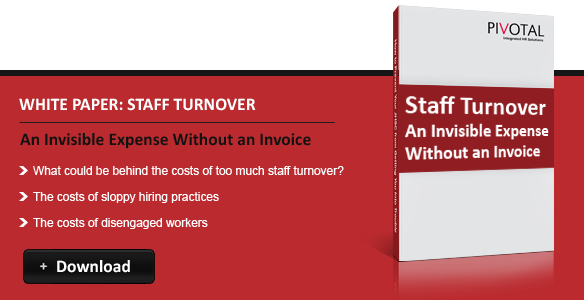Don't Let a Shortage of Skilled Workers Hold You Back
Many employers dread the day they place an advertisement for skilled workers due to perceived shortages in the workforce. The notion of overpaying for potential hires or bringing on under qualified applicants can sour the stomachs of human resource professionals and managers alike. But there are many options available to supplement the skilled workforce while maintaining quality productivity.
Tap into Foreign Markets
In many cases, shortages of domestic skilled workers can be supplemented by utilizing available foreign skilled and qualified workers. Though often perceived as too complicated to consider, the foreign labor force is frequently an ideal fit for many employers. The fact that most companies don’t have a thorough understanding of how to recruit such employees shouldn’t hold them back. There are numerous highly qualified and experienced recruiters and placement agencies already skilled at placing foreign candidates in skilled positions. Issues such as cultural assimilation, language barriers, and residency status do need to be considered but most employment agencies experienced in placing foreign skilled workers can assist in these areas, sometimes placing them in a long term temporary status that can alleviate such burdens from employers.
Utilize Temporary Labor
The perception among many employers is that skilled workers can only be hired on a direct and permanent basis, which is simply not the case. Depending on the particular skill set required, there can be numerous options available to employ skilled workers in a temporary status. This is another case where utilizing a good employment service can make all the difference. Temporary employees can fill the void on a full time or part time basis, and the option of hiring skilled workers as temporary-to-permanent hires can give employers the flexibility to fill labor voids temporarily while screening employees prior to making long term commitments.
Consider Training Programs
The notion that a skilled worker is created, not trained, can hold employers back and limit their potential growth opportunities. By putting advanced training and mentoring programs in place employers can achieve both short and long term goals by meeting short term production requirements while tailoring the skills workers develop to their own specific needs.
 This requires a global perspective of what basic fundamentals employees need to achieve success in skill development and a keen notion of the personality and cultural traits that are best suited to success for skilled workers.
This requires a global perspective of what basic fundamentals employees need to achieve success in skill development and a keen notion of the personality and cultural traits that are best suited to success for skilled workers.
Skilled workers are a valuable and prized commodity for employers and can be difficult to obtain through traditional hiring practices. But consideration should be given to foreign skilled workers, available temporary employment options and even training programs for employees with growth potential in order to fill the skilled labor void.



 Our HR solutions experts can recommend the right mix of HR outsourced services to make your entry into Canada easier.
Our HR solutions experts can recommend the right mix of HR outsourced services to make your entry into Canada easier.  Pivotal Employment Management Services co-hires your workforce, simplifying entry of your business in Canada.
Pivotal Employment Management Services co-hires your workforce, simplifying entry of your business in Canada. 
















Your Inbox Is Not a Productivity Tool